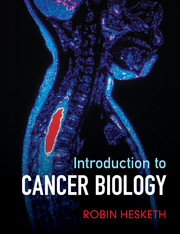Book contents
- Frontmatter
- Contents
- Acknowledgements
- Foreword
- Introduction
- 1 Lessons from epidemiology
- 2 Causes of cancer
- 3 Signalling in normal cells
- 4 ‘Cancer genes’: mutations and cancer development
- 5 What is a tumour?
- 6 Cancer signalling networks
- 7 The future of cancer prevention, diagnosis and treatment
- 8 The future of cancer in the post-genomic era
- Appendix A Tumour grading and staging
- Appendix B Targets of specific anti-cancer drugs
- Appendix C Classes of major oncoproteins
- Appendix D Major tumour suppressor genes
- Appendix E Ten major cancers at a glance
- Glossary and abbreviations
- Bibliography
- Index
- Plate Section
Appendix A - Tumour grading and staging
Published online by Cambridge University Press: 05 February 2013
- Frontmatter
- Contents
- Acknowledgements
- Foreword
- Introduction
- 1 Lessons from epidemiology
- 2 Causes of cancer
- 3 Signalling in normal cells
- 4 ‘Cancer genes’: mutations and cancer development
- 5 What is a tumour?
- 6 Cancer signalling networks
- 7 The future of cancer prevention, diagnosis and treatment
- 8 The future of cancer in the post-genomic era
- Appendix A Tumour grading and staging
- Appendix B Targets of specific anti-cancer drugs
- Appendix C Classes of major oncoproteins
- Appendix D Major tumour suppressor genes
- Appendix E Ten major cancers at a glance
- Glossary and abbreviations
- Bibliography
- Index
- Plate Section
Summary
Tumour grading is a way of classifying cancer cells on the basis of their appearance when viewed using a microscope. The grade of a tumour is important in considering treatment because it may reflect the way the tumour will behave. There are four tumour grades (1–4) that, in essence, reflect differing degrees of severity. The grade is a measure of the difference between the cancer cell and the type of normal cell from which it is thought to have derived. Thus Grade 1 tumour cells closely resemble their normal counterparts: they grow and divide slowly, are generally the least aggressive (slowest growing) and their cells are often well differentiated. Grade 2, 3 and 4 tumour cells are, increasingly to Grade 4, not readily identifiable in terms of their precursor: they tend to proliferate more rapidly than lower grade tumour cells, are the most aggressive and their cells are usually poorly differentiated or undifferentiated.
The term ‘differentiated’ crops up quite often in the context of cancer and its meaning takes us back to the very beginning, that is, the fact that animals begin life as a single cell – a fertilised egg. However, those develop into an extraordinary mixture of different types of cell, which means, in effect, that cells do two things during the making of an organism: they grow and divide to make more of the same type of cell and they change into different types of cell. This change of type to make specialised cells is called ‘differentiation’. If cancer cells look rather like a type of normal cell they are said to be ‘well differentiated’. If it’s hard to make out any resemblance to a normal cell they are ‘poorly differentiated’. This abnormality of cancer cells arises from the large number of essentially random genetic changes that make up their genomes – and it emphasises the point that in molecular terms cancer is a pretty rare event. Put another way, it’s amazing that the chaotic cancer genome can support a functional cell at all. After all, in any kind of engineering context if you jumbled up the blueprint the result would almost inevitably be that your bridge would fall down or your power station would blow up. The important point is that generally:
low grade = well differentiated = less aggressive, i.e. less malignant and less dangerous
high grade = poorly differentiated = aggressive, i.e. malignant and dangerous.
- Type
- Chapter
- Information
- Introduction to Cancer Biology , pp. 241 - 244Publisher: Cambridge University PressPrint publication year: 2012



